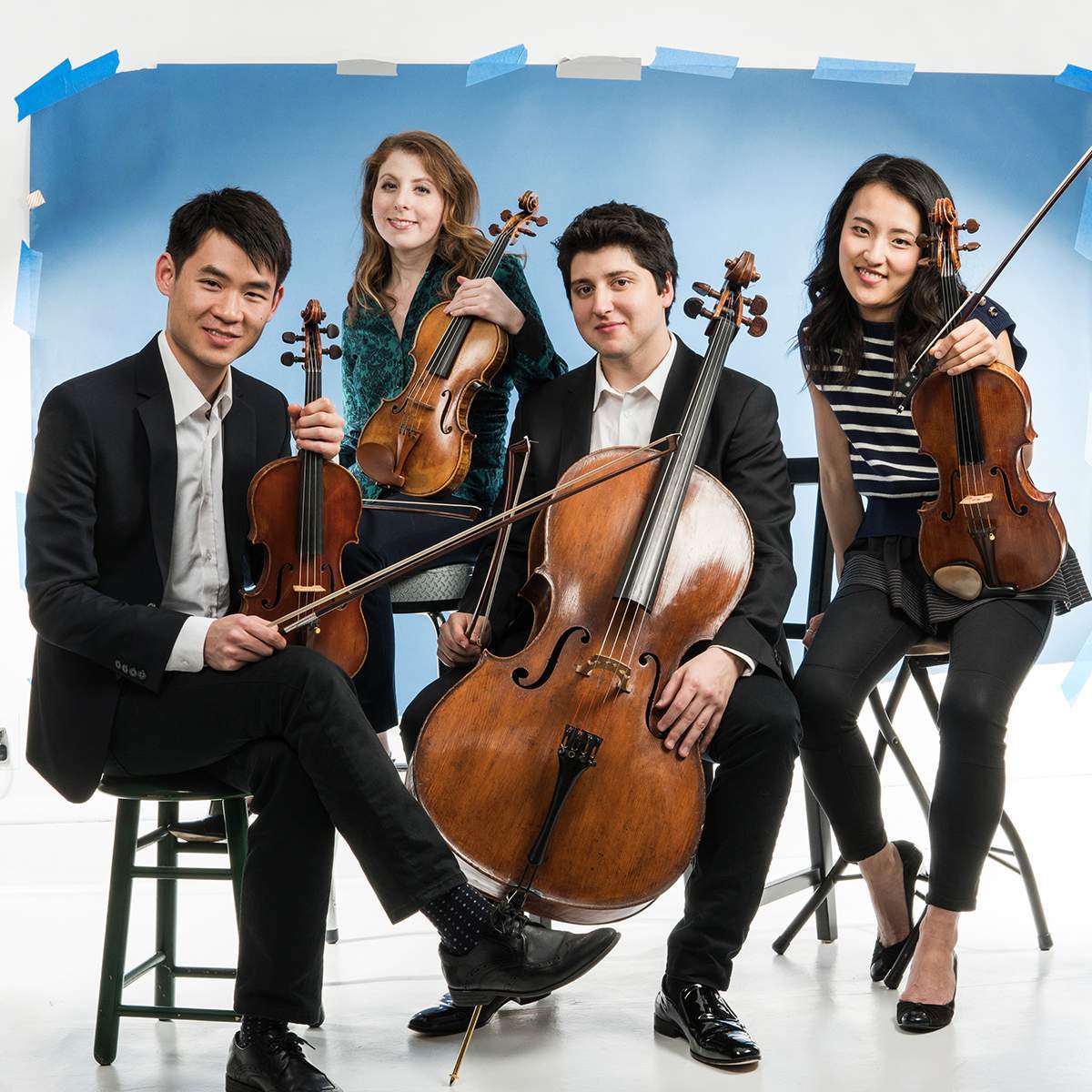LINCOLN CENTER
Alice Tully Hall
The Chamber Music Society of Lincoln Center
Suk - Elegie for Piano, Violin, and Cello, Op. 23 (1902)
Janáček - Sonata for Violin and Piano (1914-15)
Debussy - Quartet in G minor for Strings, Op. 10 (1893)
Brahms - Quartet No. 2 in A major for Piano, Violin, Viola, and Cello, Op. 26 (1861)
"Claude Debussy’s innovations made modern music possible. His only string quartet, the first truly Impressionist-style chamber music, opened a new era for the string quartet. Surrounding Debussy’s iconic work are Czech novelties both traditional and modernist, plus a milestone work of the German school, Brahms’s mighty A major Piano Quartet."
“There is no law except pleasure.”
"This was how Claude Debussy defined his groundbreaking approach to composing. During the late 19th and early 20th century, his innovations changed the way music was written, heard, and performed. About Debussy’s work on tonight’s program, composer Bruce Adolphe states: “His String Quartet is the perfect example of the huge imagination that brings to the score a completely new vision of what chamber music can be, and what music itself can be.”
From the performer’s perspective, Debussy’s string quartet, along with Ravel’s (composed a decade later and modeled on Debussy’s), constitute an essential chapter in the handbook of string quartet technique. Much in the way that learning and mastering quartets of Haydn provides the groundwork for tackling the later works of Beethoven, Schubert, and Mendelssohn, so do these two French Impressionist-era quartets require of the performer skills eventually needed for Bartók, Shostakovich, Janáček, and Korngold, to name just a few. Debussy’s quartet presented challenges on an unprecedented level in 1893, much the way Beethoven’s Op. 59 quartets required, for the first time in chamber music history, players of professional level. Debussy’s complex, layered harmonies demand perfect intonation; the fluidity of the music, combined with its frequent gossamer textures, requires players of consummate individual and ensemble skill; and most importantly, the quintessentially French nature of the music needs to be rendered with the same perfection as that country’s incomparable cuisine.
It was our intention in this program to frame Debussy’s quartet with works of strong contrasting personality. Both Suk and Janáček, like Debussy, were ardentnationalists whose music embodied all they loved in their native Czech culture. And Johannes Brahms embodied the opposite approach to Debussy: he was destined to uphold the very rules that Debussy discarded, carrying the classical tradition all the way through the Romantic era with unparalleled dedication. But four years after Debussy’s iconic quartet appeared, Brahms died, and with him the dominance of 19th-century Romantic sensibility. The future of music was passed to Debussy and to all those inspired and liberated by his genius."



























